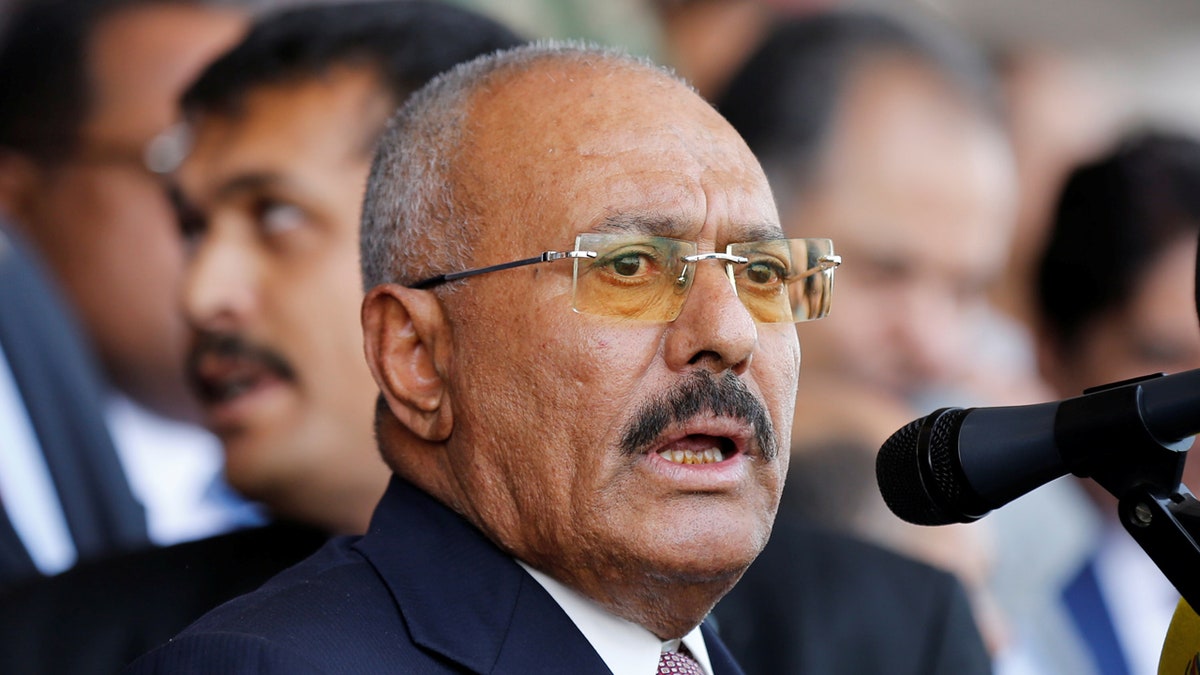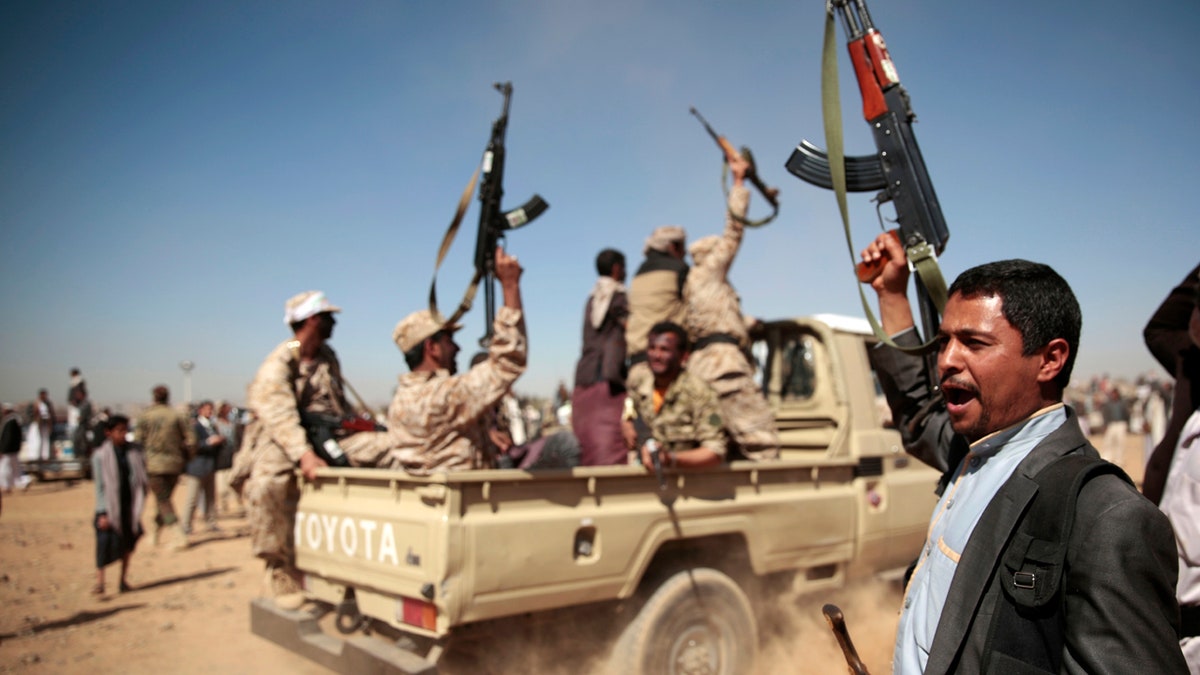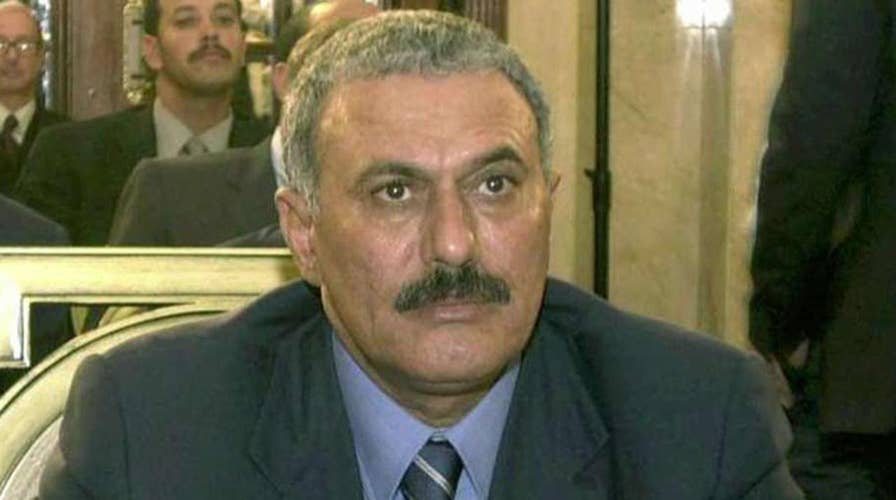Yemen's former President Ali Abdullah Saleh killed by rebels
Ex-leader killed by Iranian-backed rebels during attack in Sanaa.
Iran-allied Houthi forces claimed to have killed Yemen's powerful ex-president Ali Abdullah Saleh on Monday, while Saudi-led fighter jets pounded areas of the country's capital in the intensifying and bloody battle for control of the city.
The Houthi-run Masirah TV announced the death of the "leader of the traitors," referring to Saleh, who ruled the country for more than three decades, and up until last week was in a fragile alliance with the rebels.
A senior official with Yemen's internationally-recognized government confirmed to The Associated Press that Saleh had been killed, sending video purportedly showing Saleh's body being carried away by a group of armed men chanting, "Allahu akbar."
The official spoke on condition of anonymity because he wasn't authorized to speak to the press. It was not immediately possible to confirm the authenticity of the video, which was circulating widely on social media.

Yemen's former President Ali Abdullah Saleh addresses a rally held to mark the 35th anniversary of the establishment of his General People's Congress party. (Reuters)
Residents in Sanaa told Reuters that Houthi fighters blew up Saleh’s house in the center of the city.
Iran's FARS News Agency reported Saleh was killed while trying to escape from Sanaa on an armed vehicle, which was hit and destroyed, though that could not be immediately confirmed.
Saleh's reported killing comes as a climax to the fighting erupted between the Iranian-allied Shiite rebels and forces loyal to Saleh last week. The breakdown of the fragile alliance has caused the Saudi-led coalition to step up its bombing of Houthi positions, in support of Saleh's forces, leaving the rebels increasingly isolated after three years of war.
The fighting in the capital of Sanaa caused residents to cower in their homes as explosions rocked the city overnight. Residents and medics told Reuters at least 125 were killed in the fighting on Monday, according to Reuters.
Suze van Meegen, Sanaa-based protection and advocacy adviser for the Norwegian Refugee Council, told the AP the violence left aid workers trapped inside their homes and was "completely paralyzing humanitarian operations."
"No one is safe in Sana'a at the moment. I can hear heavy shelling outside now and know it is too imprecise and too pervasive to guarantee that any of us are safe," she said.
The Houthis and forces allied to Saleh swept into the capital, Sanaa, in 2014. The Houthis dominate the northern part of the city, while Saleh's forces hold the southern part, with much of the current fighting concentrated around the Political District, home to ministries and foreign embassies. The Houthis appeared to be targeting the homes of Saleh's family, political allies and commanders in this most recent round of fighting.

In this Jan. 3, 2017 file photo, tribesmen loyal to Houthi rebels chant slogans during a gathering aimed at mobilizing more fighters into battlefronts to fight pro-government forces. (AP)
The Saudi-led coalition launched an air campaign against the rebels in March 2015 and later expanded into ground operations. Saudi Arabia views the Houthis as an Iranian proxy on its doorstep, and the rivalry between the two regional powers has amplified the conflict. Iran supports the Houthis but denies arming them.
The stalemated war has killed more than 10,000 civilians and displaced 3 million.
The Associated Press contributed to this report.

